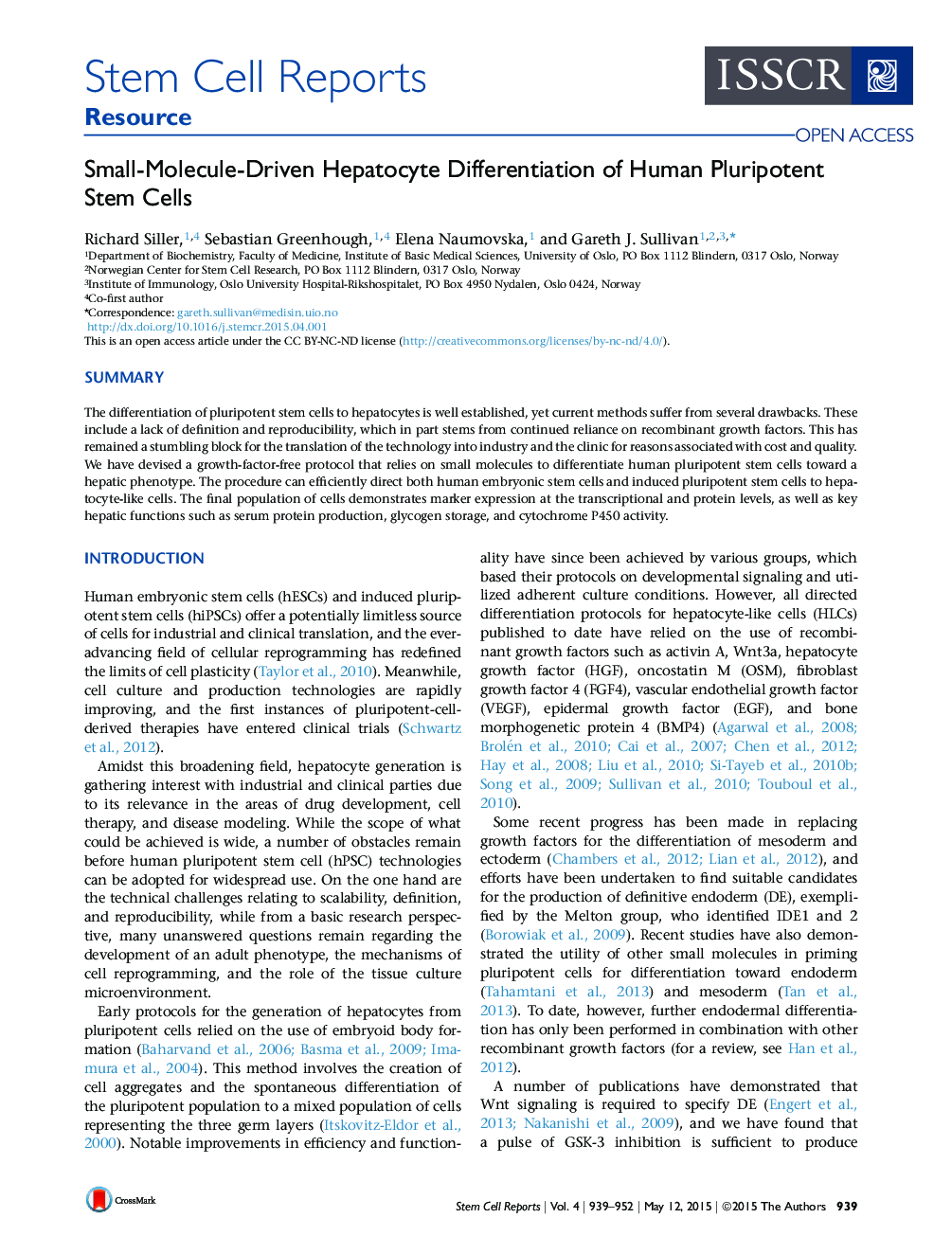| Article ID | Journal | Published Year | Pages | File Type |
|---|---|---|---|---|
| 2093583 | Stem Cell Reports | 2015 | 14 Pages |
•Development of small-molecule-driven hepatocyte differentiation procedure for hPSCs•Small-molecule-derived hepatocytes demonstrate key hepatic functions•Significantly reduces the cost of hepatocyte differentiation•Procedure is applicable to multiple human pluripotent stem cell lines
SummaryThe differentiation of pluripotent stem cells to hepatocytes is well established, yet current methods suffer from several drawbacks. These include a lack of definition and reproducibility, which in part stems from continued reliance on recombinant growth factors. This has remained a stumbling block for the translation of the technology into industry and the clinic for reasons associated with cost and quality. We have devised a growth-factor-free protocol that relies on small molecules to differentiate human pluripotent stem cells toward a hepatic phenotype. The procedure can efficiently direct both human embryonic stem cells and induced pluripotent stem cells to hepatocyte-like cells. The final population of cells demonstrates marker expression at the transcriptional and protein levels, as well as key hepatic functions such as serum protein production, glycogen storage, and cytochrome P450 activity.
